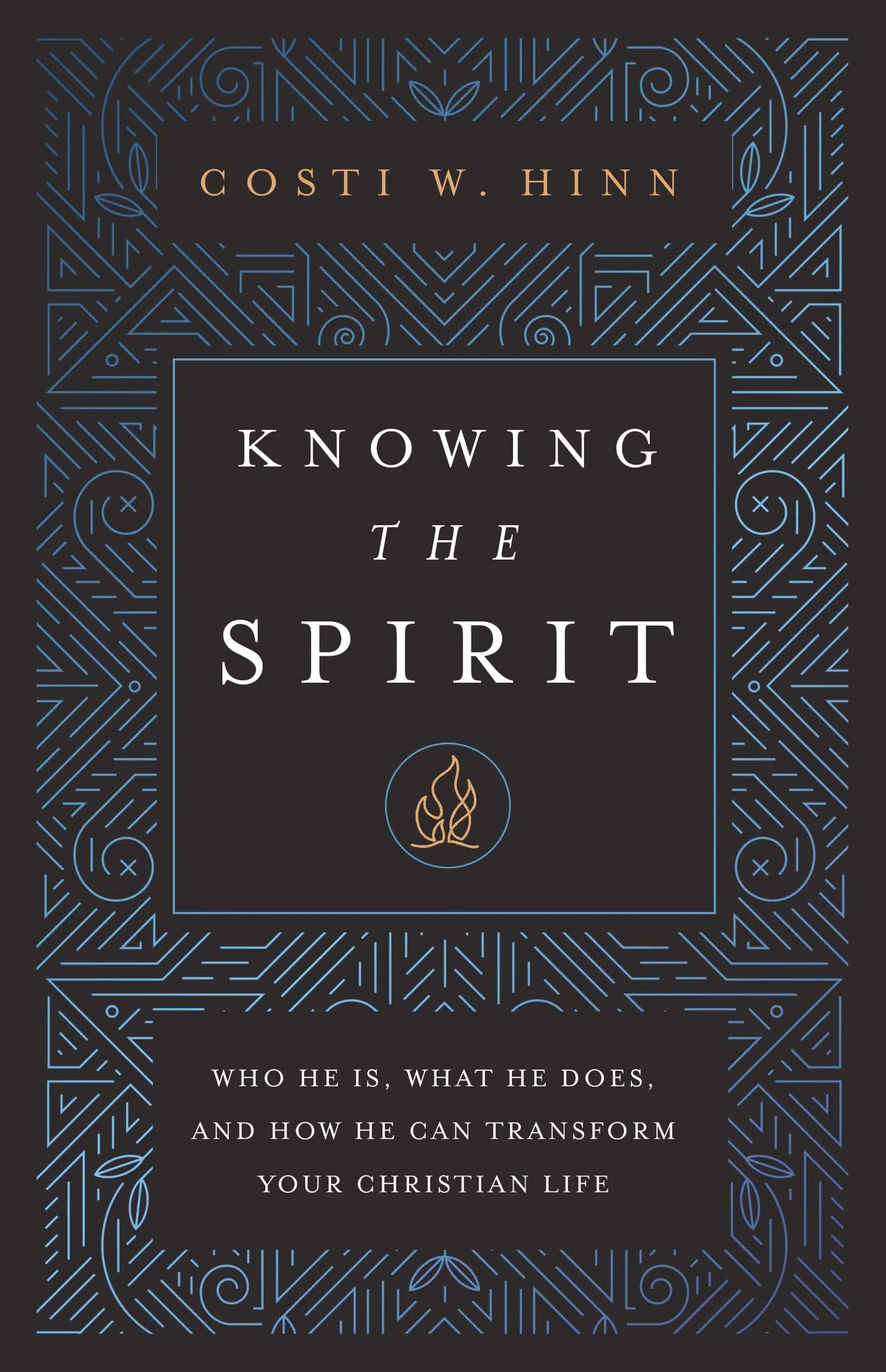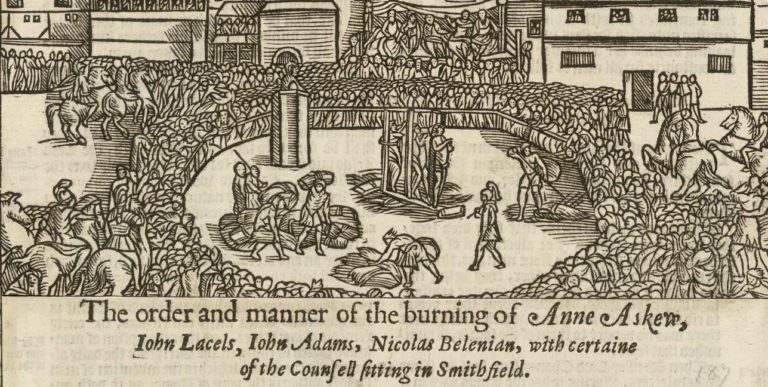Costi W. Hinn’s Knowing the Spirit is a wide-ranging, easy-to-read and eminently practical introduction to a doctrine of the Holy Spirit as well as a response to the modern charismatic movement that Costi grew up with.
Hinn brings a unique perspective to the charismatic/evangelical divide. As nephew to the famous faith healer Benny Hinn and former beneficiary of the prosperity network, he knows the movement’s excesses and its self-serving theological abuses from the inside. As a convert to reformed evangelicalism, he has also witnessed enough ignorance of the Spirit in the Christian mainstream.
Responding To Misconceptions
Hinn structures his book as a response to the problems he has observed. For those who see the Spirit as an impersonal force, he opens with a robust defence of the Trinity, insisting that the Spirit is both God and a Person to whom we owe worship, praise, prayer, and relationship (Chapter 1). Against shallow experientialism that hopes for guidance and transformation through mystical encounters (e.g. tongues-speaking, stirring worship), Hinn serves up a meatier biblical spirituality: the Spirit convicts us of our sins (Chapter 2); comes to give us new life, justifies us and helps us understand Scripture, live it out and stay Christians (Chapter 3).

Knowing the Spirit: Who He Is, What He Does, and How He Can Transform Your Christian Life
Costi W. Hinn
Knowing the Spirit: Who He Is, What He Does, and How He Can Transform Your Christian Life
Costi W. Hinn
Whether intentionally or not, many Christians today seek health, wealth, and happiness by summoning the Holy Spirit like a genie to grant their wishes. When things don’t go the way they think they should, disappointment and disillusionment abound. But it doesn’t have to be this way.
In Knowing the Spirit, author, pastor, and speaker Costi Hinn shows you why a relationship with the Holy Spirit is the most important next step on your journey as a Christian. Using clear and sound interpretation of Scripture, Costi clarifies who the Holy Spirit is–and who he isn’t–and answers some of the most important and most frequently asked questions about him.
In the next chapters, Hinn attempts to correct some sub-biblical understandings of biblical concepts. In Chapter 4, the question, “What does it mean to walk by the Spirit?” leads to a detailed exploration of Galatians 5:16–17. Hinn steers readers away from legalism and sinful license to the new life Paul wants for us; a life of Spirit-empowered holiness.
In Chapter 5, Hinn turns to ideas of spiritual “baptism” and “filling”, showing that the former is not a “second blessing” but a “free, God-given experience that is always linked to conversion” (94). Spirit-filling, on the other hand, is an occasional event that “provides the empowerment of the Spirit to live a faithful and godly life each day” (100).
Leaving Some Wrinkles Untouched
I wasn’t always sure that Hinn did enough work on ironing out the wrinkles in these discussions. Here are three observations.
First, when he encourages us to worship and pray to the Spirit, it might have been helpful to ask why such things are never commanded nor modelled in the Bible. Second, I’m not quite sure what he means when he says that the Spirit’s conviction is “universal”—whether he is speaking about a general intuition (c.f. Rom 2:14–15) or something that only happens with the preaching of the gospel. Third, It might have been helpful if he had done a bit more work on difference between the unbidden, speechifying Spirit-fillings of Acts 2:4; 4:8, 31 with the holy lifestyle commanded in Ephesians 5:18–6:9.
Such omissions sometimes undermine his (very admirable) attempts to be fair to those with whom he disagrees. A greater acknowledgement of complexity, as well as more careful steelmanning, would have helped the cause.
The Spirit’s Purpose
These objections are not a reason to reject the book, however. Many of Hinn’s arguments are well worked through, persuasive and encouraging. I personally found his exploration of gifts and giftedness (Chapter 7) to be one of the most thoughtful and engaged treatments that I have encountered. I wasn’t entirely convinced by everything he says about gifts—does he truly think that Acts 8:39 signifies a gift of teleportation (161, 168)?! But I love his clarity about their purpose:
Spiritual gifts involve you but are not about you … gifts are for glory, but not our own. Gifts bring glory to God as people serve, give, preach, teach, love and care for others. (126, 129)
In the light of this excellent correction, Hinn’s treatments of some of the less celebrated gifts such as faith, leading, helping and mercy (134–135) are also very helpful.
In a similar vein, Hinn’s discussion of “Spirit-filled worship” (Chapter 6) was my favourite part. Denouncing charismatic razzmatazz on one hand and hidebound conservatism on the other, Hinn calls for worship which is “lifestyle … every moment of every day” (108–109). Worship which prioritises truth and holiness and doesn’t shy away from sin. Best of all, worship that focuses on Christ:
The Holy Spirit didn’t come to put the spotlight on us, he came to put the spotlight on Christ. That is where all spirit-filled worship begins and ends … he takes the minds, hearts, and attention of believers and shifts all the focus onto Christ … Spirit-filled worship honours the spirit by making much of Jesus Christ. (118)
I wish this last section had been longer, but it is wonderful stuff.
A Call To Scripture-Centred Spirituality
Hinn finishes well. In Chapter 10, he challenges us to pursue a spirituality that relies on the written promises of God rather than mystical vagaries that confuse our subjective impressions with the Holy Spirit.
Jesus is superior to any voice, and the Spirit reveals him through the Scriptures … if there is one thing you take from this book, I plead with you to live your life by this truth: the Spirit’s leading, guiding, and directing of our lives will never be divorced from the Word. The Scriptures are where his voice is revealed. If you want to hear the Spirit speak, read the Bible. (197)
Chapter 11 concludes with some timely exhortations to humility and gentleness in our theological disagreements. Hinn’s three-fold classification of importance of disputes—Zone 1 (primary gospel) issues; Zone 2 (not primary but important); and Zone 3 (disputable matters)—is an improvement on the too-simple “gospel issue” vs “disputable matter” that crops up in many contemporary discussions, though I was surprised to see “creationism” in Zone 1 along with the doctrine of the Trinity and the Second Coming.
Finally, Hinn’s commendation of charismatic “passion, evangelism, and [trust] that the Spirit is going to move in power to bring revival,” is welcome, along with his parting exhortation:
The people in our churches do not always need a Sunday filled with experiences … Give more time to preaching, teaching, and going deeper into doctrine and I believe you will find balance in ways you never imagined. (229)
Knowing the Spirit may not be as thorough as Don Carson’s Showing the Spirit, J.I. Packer’s Keep in Step with the Spirit or Phillip Jensen’s The Coming of the Holy Spirit, but it is a more accessible book and would make a good companion to those others. I am sure it will be a valuable resource for many Christians looking for a clear, confident and Bible-based response to Charismatic spirituality. The discussion questions and practical “Learning to Live” sections at the end of every chapter will particularly help those wanting to use the book in group contexts.















